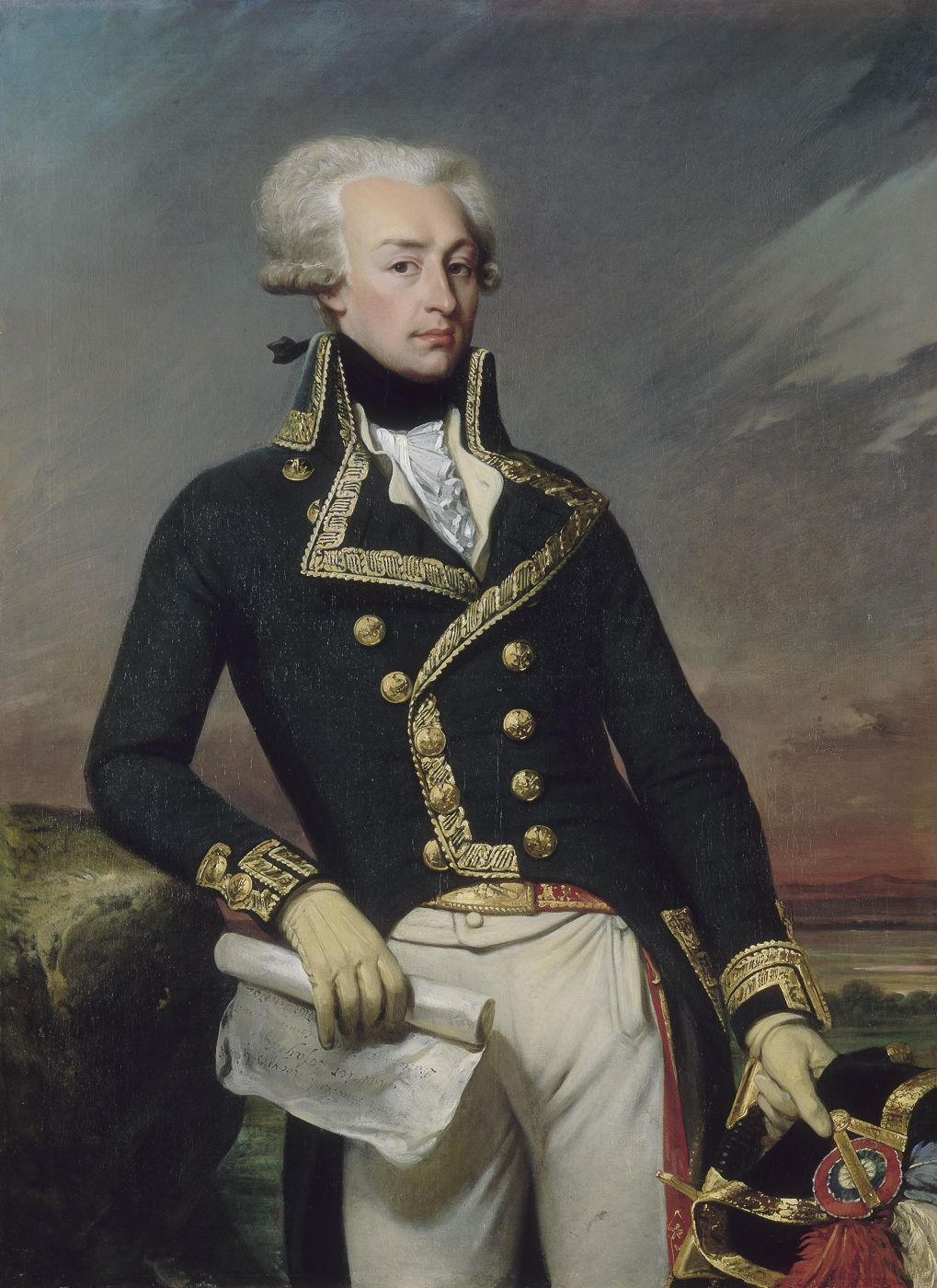The Marquis de Lafayette:
A Benefactor of Mankind
Special to the Newsletter
by Michael F. Bishop
On November 4, 1824, during a triumphant tour of the United States of America that he had helped to create, the elderly Marquis de Lafayette climbed out of his carriage atop the little mountain in Virginia where stood the home of Thomas Jefferson, author of the Declaration of Independence and former president. The two men, overcome with emotion, embraced on the lawn, to the delight of onlookers. Half a century had passed since the French aristocrat had joined forces with Jefferson and his revolutionary colleagues to secure American independence.

Marie-Joseph Paul Yves Roch Gilbert du Motier de La Fayette was born on September 6, 1757, in what is now the Haute-Loire department of France. He was descended from an extensive line of distinguished soldiers on both sides of his family; his father died in battle before Lafayette’s second birthday, and he inherited the title of marquis, received a generous inheritance, and a military education. An officer by the time he was thirteen, Lafayette became enthralled with the American revolutionary cause; by the time he turned twenty, he had purchased a ship and sailed to South Carolina.
Within a few months, Lafayette traveled to Philadelphia and was appointed a general in the Continental Army. Soon afterward, he met General George Washington, commander in chief, and the man who was to become a surrogate father to the young Frenchman. Lafayette served on Washington’s staff, saw combat in several battles, suffered wounds, and shared the terrible conditions at Valley Forge. He was lauded by Congress for his “gallantry, skill, and prudence,” and after a brief return to France—where he urged the government to take up the American cause—he returned for the final phase of the Revolutionary War. After several difficult months, Lafayette played a critical role in the final American victory at Yorktown. After the battle, he wrote to his friends in France, “Humanity has won its battle. Liberty now has a country.”
He went back to France and was hailed as a hero; on his next visit to America, he was granted citizenship and many other honors. Lafayette worked to expand the blessings of liberty by calling for the abolition of slavery, a message that was ignored in the southern states.
The storming of the Bastille prison in Paris on July 14, 1789, marked the beginning of the eighteenth-century’s next great revolution—in France. But Lafayette’s role in this upheaval was more troubled and less glorious. A moderate, constitutional monarchist, he helped author the Declaration of the Rights of Man and of the Citizen, and worked to protect Louis XVI and his family from the mob. The radicalism of the French Revolution dismayed him, and when men under his command fired on a crowd of revolutionaries demanding the king’s abdication, he became a hated figure. He fled France but was imprisoned five years in Austria. A young general named Napoleon Bonaparte secured his release.
Meanwhile, Lafayette’s reverence for George Washington continued. He named his first son after his old commander, and presented him with the key to the Bastille, a gift that is still displayed at Mount Vernon.
Despite being offered a number of government posts in the Napoleonic regime, Lafayette lived a fairly quiet life until his long and triumphant 1824 tour of the United States. He enjoyed lavish celebrations in every state, visited President James Monroe at the White House, along with Monroe’s predecessors, James Madison, Jefferson, and John Adams, and the grave of Washington at Mount Vernon. Congress granted him $200,000 in recognition for his services during the American Revolution.
On May 20, 1834, a decade after his final visit to America, Lafayette died in Paris, at the age of 76. He was buried in France, but soil from Bunker Hill was sprinkled on his grave, and an American flag still adorns it. The Capitol in Washington was draped in black, and Congressman John Quincy Adams, former president of the United States, declared to his colleagues: “…till the hour when the trump of the Archangel shall sound to announce that Time shall be no more, the name of Lafayette shall stand enrolled upon the annals of our race, high on the list of the pure and disinterested benefactors of mankind.”
Michael F. Bishop, a writer and historian, is the former executive director of the International Churchill Society and the Abraham Lincoln Bicentennial Commission.




